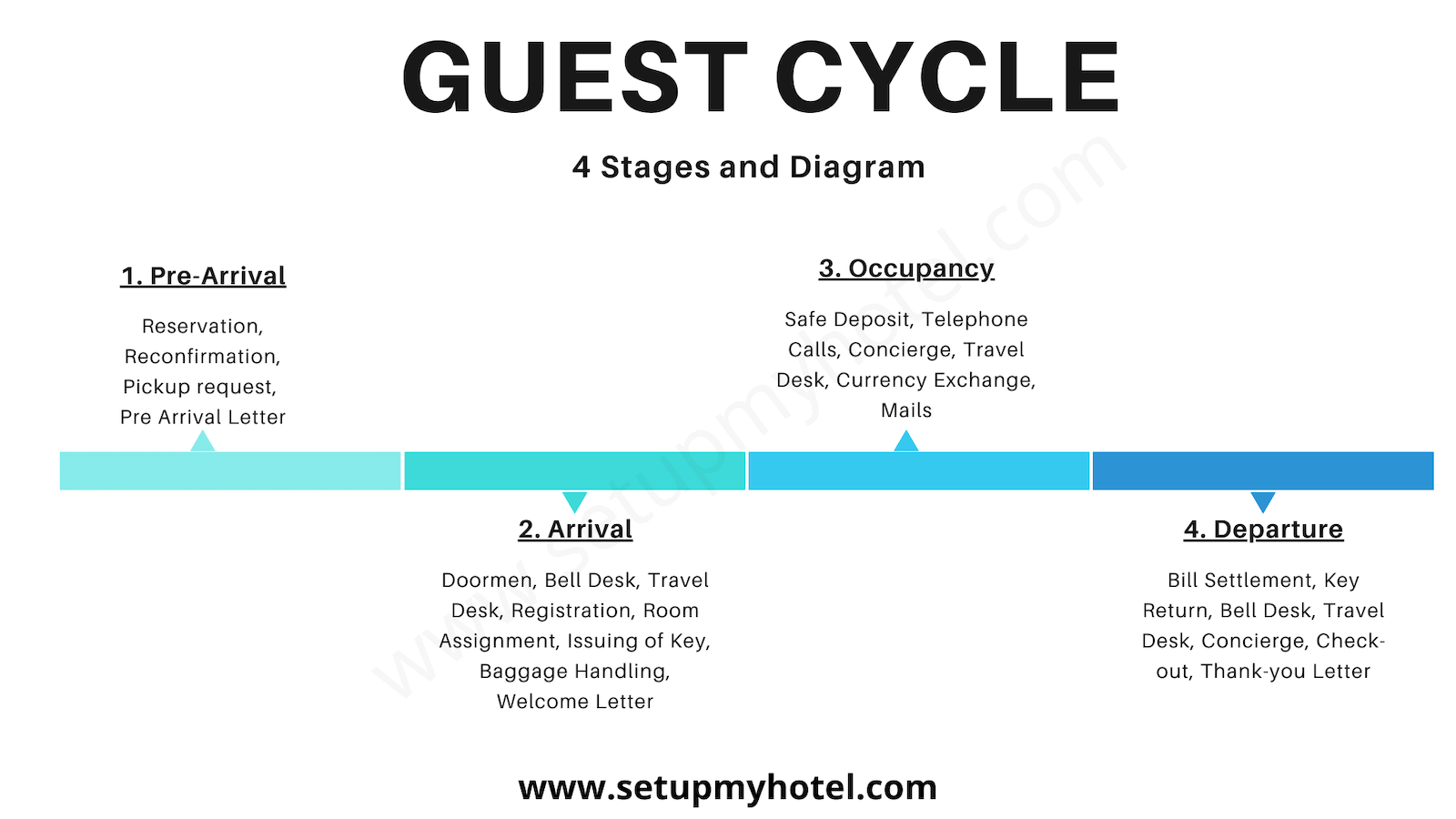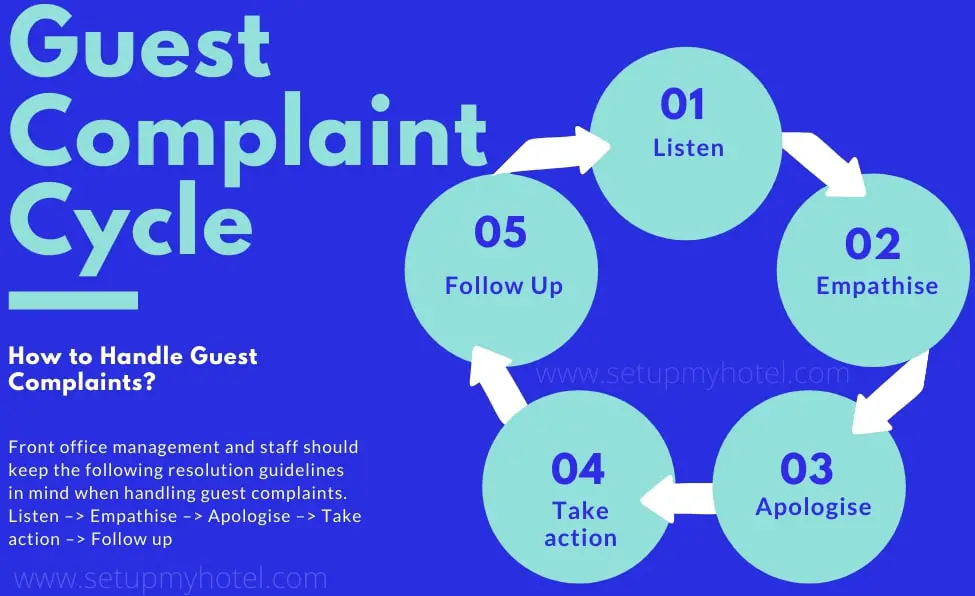Bomb Threat Guidelines For Hotels
Guidelines for handling Bomb threats in Hotels and Resorts When a hotel receives a bomb threat, the primary concern must ...
Read more
Key Terms / Jargon’s Used In Front Office
Key terms or jargon used in the hotel Front Office department American Plan ( AP) – A billing arrangement under which ...
Read more
How To Cancel Reservations In Hotels
How to Handle Reservation Cancellations in Hotels? A guest does a service to the hotel when they take time to ...
Read more
How To Handle Walk In Guest

How to Handle Walk Guests or Guests Without Reservations in Hotels In General, a Hotel is obligated to accommodate guests. ...
Read more
Guest Cycle: What It Is And How It Works

The Guest Cycle in the hotel with Four Stages and Diagram The Guest Cycle in a hotel refers to the ...
Read more
23 Room Types Or Types Of Room In Hotels | Resorts

Types Of Rooms in Hotels When it comes to booking a hotel room, there are many different types of rooms ...
Read more
Room Status Terminology / Definition In Hotels | Resorts

Room Status Terminology / Definitions for hotels During the guest’s stay, the housekeeping status of the guest room changes several ...
Read more
Handling Guest Complaints In Hotels

Guidelines for Handling Guest Complaints Handling guest complaints is an inevitable part of the hospitality industry. No matter how well ...
Read more
Building Telephone Skills For Hotel Staff

How to Build Telephone Skills for Telephone Operators? In the hospitality industry, communication is key. One of the most important ...
Read more
Mission And Goals Sample For Hotels

How to define Hotel Missions and Goals The mission and goals of a hotel are crucial in defining the direction ...
Read more









